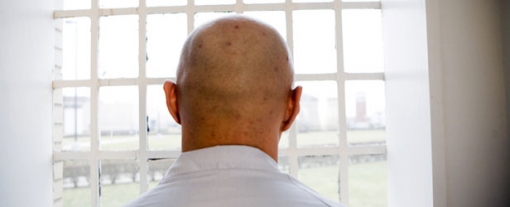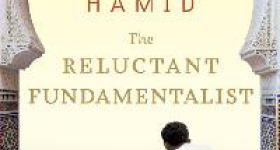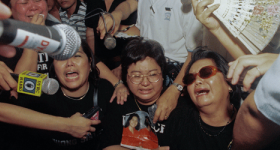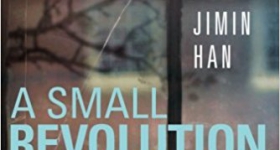Bertha Bay-Sa Pan's Almost Perfect
It's Thursday. Have you not bought your SFIAAFF tickets yet?! Well, in case you needed an extra little nudge to make your movie picks this week, here's Hyphen's last installment of film reviews from the SFIAAFF 29 catalog. Today we've got romance and family dysfunction, Asian American style -- and real-life murder, Korean American style.
Almost Perfect
Dir: Bertha Bay-Sa Pan
Momo's Take:
I hesitate to watch Asian American themed narrative stories, because they are sometimes truly bad.
Thankfully, Almost Perfect avoids the cringeworthiness, for the most part (more on this later). Almost Perfect is a romantic family drama starring the lovely Kelly Hu as Vanessa, who, on the outside, seems like she’s got her shit together. On the inside, she is a mess, bound by the needs and goals of her upper class family members: her workaholic mother (Tina Chen); her high-maintenance, stressed out fashion designer sister (Christina Chang); her helpless yet demanding father (Roger Rees); her couch-surfing, escapist brother (Edison Chen!). They all rely on Vanessa for help, but can she even help herself?
And what happens when a girl like Vanessa finally finds love, at 34? When an old friend arrives, played by Ivan Shaw, everything seems to come together, but all of her family’s stresses also arise, including her parents’ nearly failing marriage.
At the core, the story is about figuring out boundaries, what many Asian American families are not good at, and communicating (another fatal flaw). As for Hu and Shaw, they have believable, true chemistry throughout most of the film. But some scenes left me feeling, huh? (as in, what was that about?) and occasionally, the acting and dialogue made me wish it wasn’t there. Overall, there are more plusses than negatives to this family drama. There are interesting tensions throughout, and enough ups and downs, that keep the film afloat. There were even some tears (from me). The film’s appeal is that it hits the core of what some women, in the midst of very demanding families, face. Ultimately, it is about growing up and taking ownership of one’s life, despite our circumstances.
Ahmad's Take:
I’ll be honest, I’m not a rom-com person. Everytime I inadvertently see one on cable TV or on the plane, my eyes automatically roll upwards as a reflex. But don’t get me wrong; I truly relish films about love and the madness it inspires among us. I still get weepy when I watch The Remains of the Day.
That’s why Kelly Hu’s new film surprises me. I like it a lot. Despite its formulaic romantic comedy storyline, it managed to ensnare me. Actually most of the plot is worthy of a TV movie. Kelly plays Vanessa Lee a thirty-something NGO worker who falls in love with an old friend. But as they get closer and grow more serious, Vanessa’s family implodes. Hilarity ensues.
The film’s family hi-jinx drama could have easily deteriorated to a series of clichéd scenes but Bertha Bay-Sa Pan skillfully maneuvers her characters and the plot to avoid the fate of so many Hollywood rom-com stinkers. Some storylines could have been groan-worthy but thanks to Pan’s restraint, the movie’s leads are genuinely likeable and are worthy of our sympathy.
Among them was Edison Chen’s admirable turn as Vanessa’s younger brother who’s dealing with a marriage on the verge of collapse. Chen surprised me because he usually can’t act and relies on his pretty boy looks to carry himself through movies. In Almost Perfect, that veneer is stripped down and he plays a wounded man convincingly.
The movie also deserves kudos for avoiding Asian American identity politics. I consider it the anti-Joy Luck Club or the antithesis of Double Happiness, two films that are likeable enough. But both tortured their audiences as they delved into Asian American issues and generational conflict with a ham-fisted approach.
Almost Perfect deals also with an Asian American family and mixed-race marriages but it doesn’t hit audiences over the head with ‘Ooo-I’m-Asian-and-American-and-oh-so-conflicted’ syndrome. Instead of occupying center stage, the movie’s identity politics are in the background and the pace is a lot breezier because of it.
But paradoxically, that lack has also played against the movie’s strengths. Since there’s an absence of those politics, the movie has more elements akin to your typical rom-com. You can replace most of the leads with any ethnicity and the movie will still work, given that you cast capable actors and actresses.
--Ahmad Coo

The House of Suh
Dir: Iris K. Shim
The House of Suh is a gripping, feature-length documentary that tells the twisted and sad story of a Korean American immigrant family in Chicago. The film looks at a murder case and goes straight to one of the sources -- the killer himself, Andrew Suh.
The story that unfolds from Andrew Suh, family members and others complicates the picture. The film’s strength is its exploration of the nuanced backstory to Andrew’s act of violence. Suh shot and killed his older sister Catherine’s fiancé in 1993, allegedly because Catherine told him to. On the surface, he may seem like a cold-hearted murderer, but the film fleshes him out as a human being, one that is articulate and has a sympathetic story. (Filmmaker Shim befriended Suh while he was serving his 100 year sentence in federal prison).
It’s this conundrum that may leave viewers uneasy, as Suh both seems remorseless yet also sympathetic. Once a popular, high achieving high school kid, Suh’s life takes a dramatic turn at age 19. Was he brainwashed by his sister? The key to answering some remaining questions is in the hands of Catherine, who’s been portrayed in mainstream media, including America’s Most Wanted, as the evil mastermind behind it all. Yet she did not want to be interviewed, leaving a huge knowledge gap in the Suh family saga. Still, the film does an admirable job of tracking down many other interviewees, weaving in dramatizations and animation and putting in place many pieces of the murder mystery puzzle. Most of it is told through Andrew’s own narration. The storytelling is strong, with many ups and downs that never leave the viewer bored. Still, the mystery is not yet solved, and one wishes that Catherine would agree to do an interview. Perhaps there will be a House of Suh part two, telling Catherine’s side.
After viewing the film, I wondered if it’s a film I would recommend to people. On a purely entertainment level, it’s got all the elements of a murder mystery documentary but with the twist of humanizing the murderer. Many documentaries have a purpose, or lesson, and thus even if unpolished, I might recommend it for edification purposes. It was hard to find the “lesson” in this documentary; it’s subtle and the filmmaker leaves it up to you to figure out what to make of it all.
In part, it’s because the sheer craziness of this true life story overrides the lessons. According to the filmmaker, the documentary explores issues of “cultural assimilation, gender inequity, traditional values and justice.” Some sub-themes that were left unexplored are community support and mental health issues. The filmmaker also shares, in the director’s statement, the interesting backstory, which many younger folks will not remember: that this was once a very famous Chicago murder mystery and that this story was remade into a telefilm called "Bad to the Bone" -- with an all-white cast. Telling the full story behind the murder is important in re-writing history.
--Momo Chang









Comments